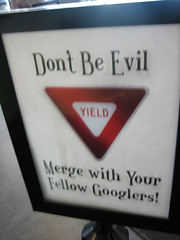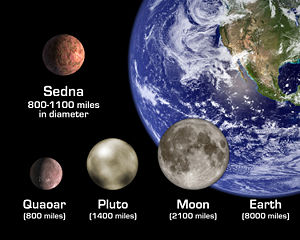 Image by tantek via FlickrTwelve years ago this week -- Sept. 4, 1998 -- Google was founded by Stanford students Larry Page and Sergei Brin. What began as a project to improve academic paper citations has since become arguably the most powerful media company on earth. No small part of Google's monstrous growth was the loyalty of the tech community, which the company won over with its upstart idealist motto "Don't Be Evil."
Image by tantek via FlickrTwelve years ago this week -- Sept. 4, 1998 -- Google was founded by Stanford students Larry Page and Sergei Brin. What began as a project to improve academic paper citations has since become arguably the most powerful media company on earth. No small part of Google's monstrous growth was the loyalty of the tech community, which the company won over with its upstart idealist motto "Don't Be Evil."With repeated privacy gaffes like Google Buzz's contact list exposure or the Wi-Fi packet sniffing performed by Google Street View survey vehicles, people have begun to doubt whether the Don't Be Evil mantra is still practiced at Google. With Google's blatant net neutrality sellout to Verizon, some suspect Don't Be Evil was never a serious part of Google's corporate DNA.
To that end, it's worth noting that Don't Be Evil is a phrase that was suggested to Brin and Page, rather than suggested by Brin and Page. And it wasn't current CEO Eric Schmidt that brought Don't Be Evil into Google's company culture. Instead, it was one of Google's most influential early employees that coined Don't be Evil as a core company value -- an employee that, perhaps tellingly, is no longer with the company.
Who coined Google's unofficial motto Don't Be Evil?




